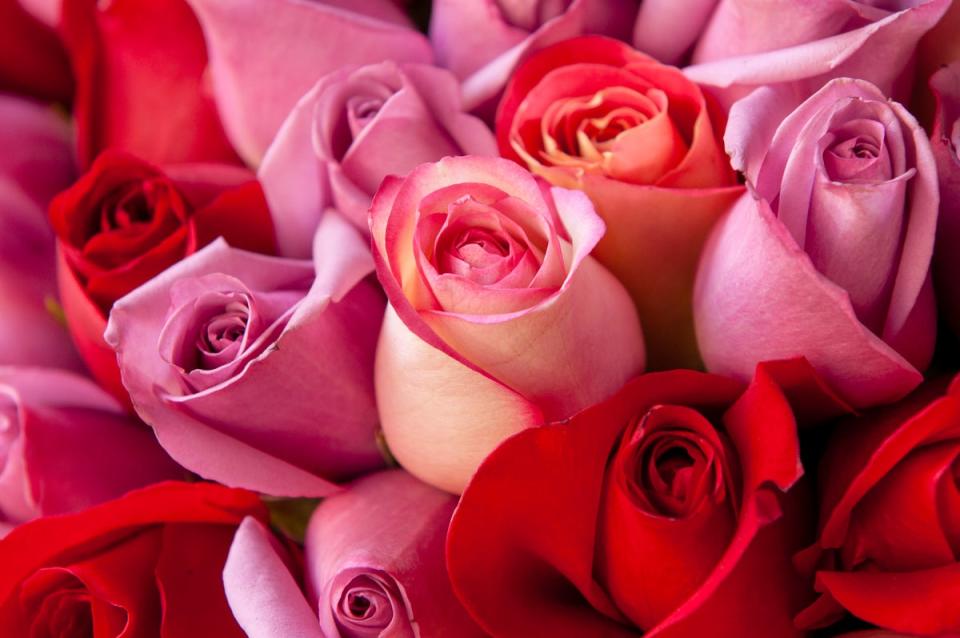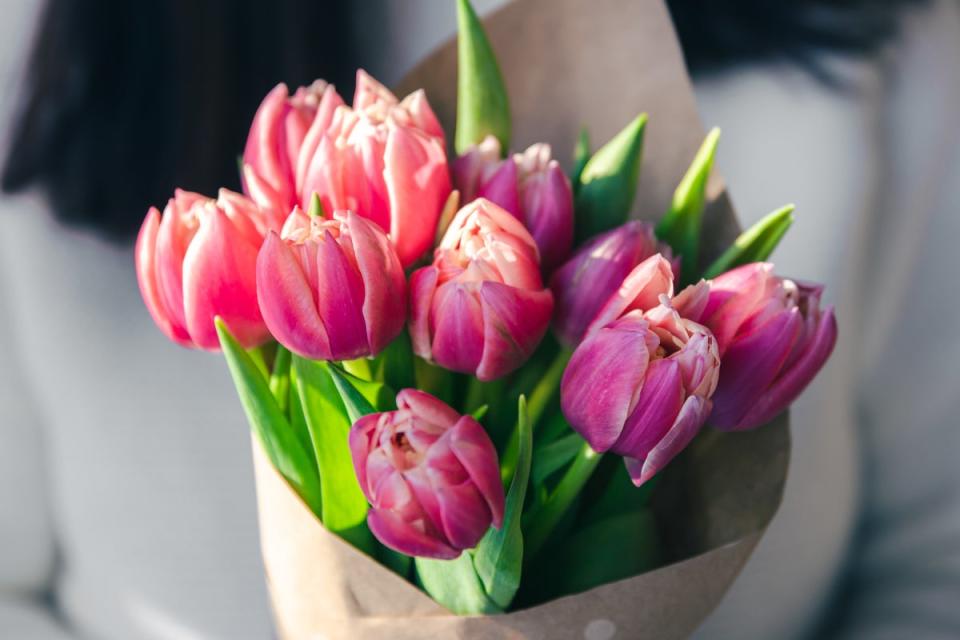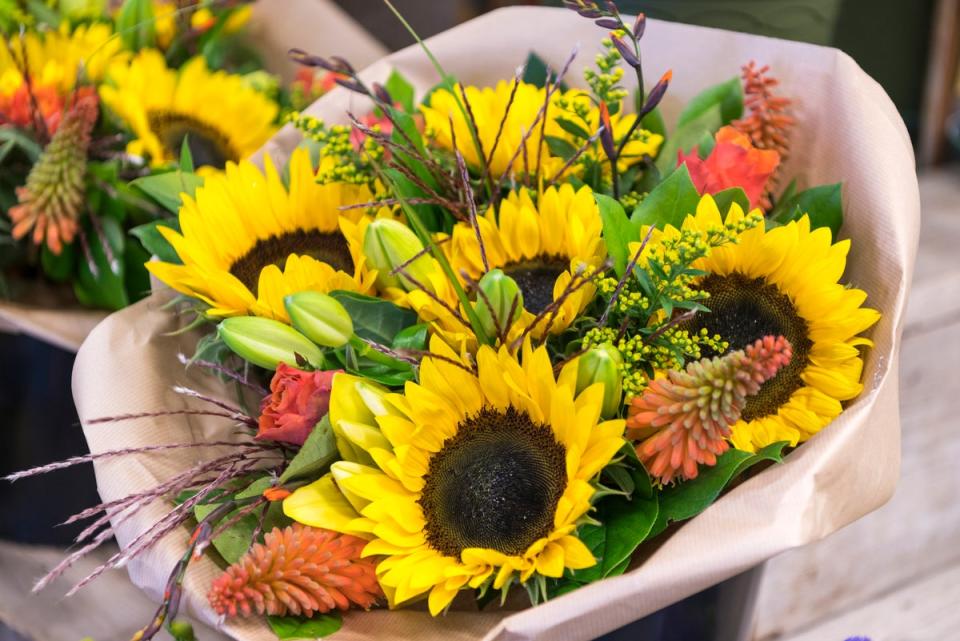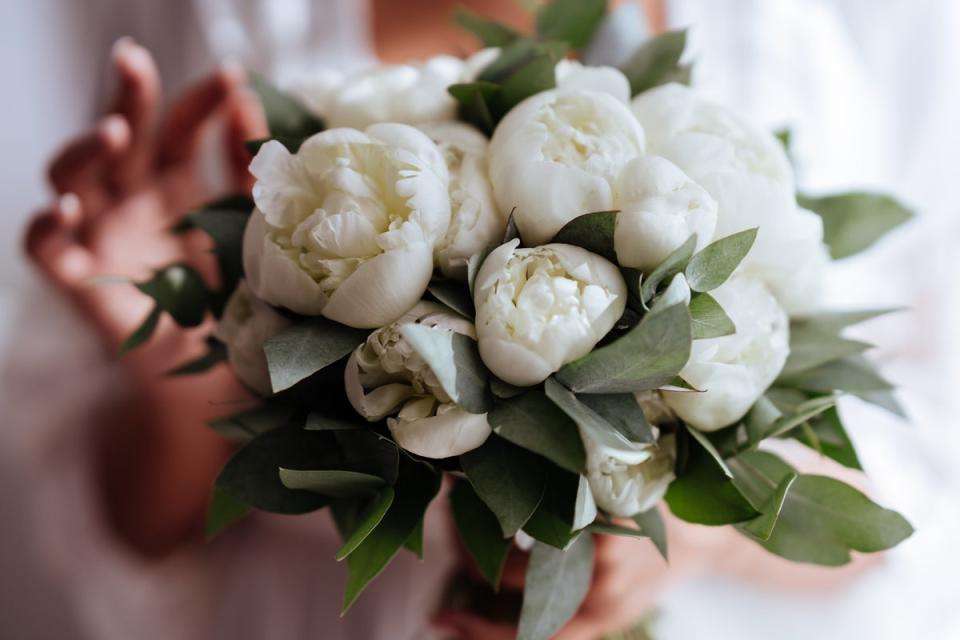Valentine’s Day: What certain flowers say about your relationship
Valentine’s Day is here, which means you’re probably about to buy your special someone a bouquet of flowers at the last minute.
Don’t feel ashamed - we’ve all been there before. It’s easy to let Valentine’s Day fall by the wayside, especially when this year’s holiday falls on a Wednesday. But what happens when you stop by your local florist and realise that all the red roses have been snatched up? Do you buy just any old bouquet? Of course not.
There’s a unique meaning and significance behind every flower. As we all know, roses have become the unofficial token of Valentine’s Day - often symbolising romance and love. But depending on the type of flower you choose for your bouquet, it can end up meaning something much deeper than love.
Here’s what certain flowers say about your relationship.
Roses

While roses accounted for more than 80 per cent of all Valentine’s Day flower purchases in 2022, there’s more than just the red perennial to choose from. White roses symbolise purity, youthfulness, and innocence, but pink roses suggest elegance and femininity. According to Venus et Fleur - the popular makers behind the best-selling eternity flowers - pink roses can also be gifted to a platonic friend or colleague, as the flower is also a symbol of thoughtfulness.
Tulips

Next to roses, tulips are the second most popular flowers to give this Valentine’s Day. Tulips bloom in the spring, so these flowers are commonly used to represent a rebirth or new life. But did you know that certain tulip colours also hold their own significance?
Much like white roses, white tulips are given as a way to show purity, respect, or forgiveness, according to the popular flower delivery company 1-800-Flowers.com. Yellow tulips are meant to bring about feelings of cheerfulness and hope with their bright colour, while orange tulips are vibrant and enthusiastic. Because the colour purple has long been associated with royalty, purple tulips signify luxury and nobility.
Orchids

Orchids are one of the most captivating flowers on the planet, with some people paying thousands for rare or endangered species of orchids. While the plant has a reputation for being difficult to care for, all they require when placed indoors is water and indirect sunlight.
Being such an interesting and exotic plant, orchids can make for a thoughtful gift this Valentine’s Day. In fact, orchids are known to symbolise beauty and refinement.
Lilies

When it comes to lilies, these flowering plants are bursting with symbolism. Lillies have come to represent purity, innocence, and rebirth throughout history and religious iconography. According to Flower Magazine, the Roman Catholic Church adopted the white lily as a symbol for the Virgin Mary. Greek mythology has its own origin story for the lily, which was created from the breast milk of Hera and represents fertility.
On the other hand, lilies are often sent as sympathy flowers because they symbolise one’s soul passing away from the body.
Sunflowers

While sunflowers are an unlikely flower to give your special someone this Valentine’s Day, their common association with positivity and joy might be the perfect message you want to send. Due to its sun-like appearance, the sunflower is the ultimate symbol of happiness. But according to Bloom and Wild, they also have different meanings across cultures. In China, sunflowers symbolise long life, vitality, and good luck, while in Native American culture, sunflowers symbolise harvest and provision.
Carnations

Carnations can come in all shapes and sizes, so it matters which one you pick for your Valentine’s Day bouquet. These flowers date back all the way to Ancient Greece and Rome; its scientific name, Dianthus, is derived from the Greek words “dios” meaning god and “anthos” meaning flower.
Because carnations have been around for quite some time, they’ve developed different meanings over the years. Carnations most commonly symbolise devotion, love, and distinction, but be wary of which colour carnation you choose. Yellow carnations express the idea of rejection and disappointment with someone, HGTV reports.
Peonies

It’s tradition that peonies are given to a partner or spouse to celebrate a 12th anniversary. These flowers are known for their bulbous buds, which can bloom up to three times their original size. When it comes to Valentine’s Day flowers, gifting someone a bouquet of peonies can symbolise prosperity and good fortune.

